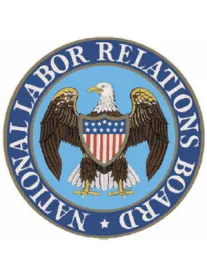In a previous article, we noted that the NLRB’s recent Browning-Ferris ruling was significant for those employers who use temporary or staffing agencies to provide workers. The Board set a new, broader test for joint-employer status that does not require the purported joint employer to exercise control over the workers in question. Instead, if the company has the right to exercise control over the terms and conditions of certain workers, it can be deemed a joint employer even if it never actually exercises that control. Now we can see the significance of the impact.
Based upon the joint-employer determination, the impounded ballots of the workers of Leadpoint Business Services, the entity that staffed Browning-Ferris’s California recycling plant, were counted as part of the bargaining unit, which provided a 73-17 margin in favor of representation by the Teamsters. Depending on the outcome of any objections filed by the company, the NLRB will certify the union as the collective bargaining representative for the recycling center’s workers. This allows the unit to collectively bargain over the terms and conditions of employment at that facility.
Bargaining Over Terms Of Contingent Workers
Think about this: Browning-Ferris does not “employ” the workers placed at its facility by staffing agency, Leadpoint. It doesn’t hire, pay, provide benefits to, or fire them. Yet, it will be required to sit down at the bargaining table across from the Teamsters to negotiate the terms and conditions of employment of those contingent workers over which it retains authority to control. That is the result of being found a joint employer of the bargaining-unit workers.
Extension of Joint-Employer Test to Other Contexts?
Joint-employer status is a critical determination for companies that use contingent workers as well as for franchises. And, it can apply not only in the union context, but also in other employment law contexts, such as for pay purposes under the Fair Labor Standards Act or for discrimination under Title VII. Even though the standards and policy behind a joint-employer relationship under other employment laws may differ from those behind the National Labor Relations Act, this new, broader test will likely be asserted in these other contexts in order to bring in franchisors and companies that use contingent workers as potentially liable parties.
Appeal Over Joint-Employer Test Coming?
Because of the high stakes involved in this ruling, it would not be surprising if Browning-Ferris (which is part of Republic Services, Inc.) appealed the NLRB’s ruling, taking its case to the applicable court of appeals. Another option is that after the union is certified, Browning-Ferris could refuse to bargain with the Teamsters which would lead to more proceedings before the Board, and ultimately, the courts. Given that the Board has already ruled in favor of the union on this matter, the company will likely have a better chance seeking review by circuit judges. Either way, this matter is probably not over.
Stay tuned and we will let you know what develops further. What we do know, is the NLRB will not sit idle and we should expect it to use its power to push the envelope in favor of the nation’s unions.



 />i
/>i

